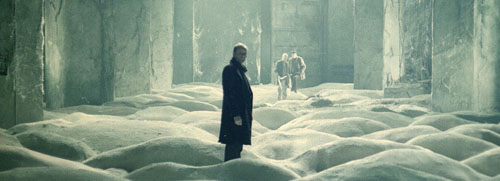
Stalker :: 1979
Director: Andrey Tarkovskiy
Actors: Aleksandr Kaydanovskiy, Alisa Freyndlikh, Anatoliy Solonitsyn
Genres: Adventure, Drama, Fantasy, Mystery, Sci-Fi
This movie features hauntingly beautiful imagery and takes the viewer on a sleepwalk into the heart of darkness. The story itself is quite simple: a guide, or Stalker, takes two people – a Writer and a Professor – into a forbidden area called ‘the Zone’, at the heart of which lies ‘the Room’, where one’s deepest wish will come true.
The idiosyncratic visual language, slow and subtle camera movements, and encrypted symbolism create a mood that oscillates between dream, melancholia, and inner calmness. As Tarkovsky himself said, it creates a state where ‘space is frozen in a dynamic equilibrium.’ This movie is a journey into an inner world, a labyrinth of our deepest fears and desires.
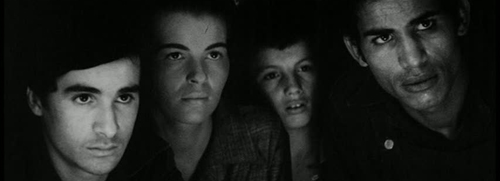
The Battle of Algiers (La battaglia di Algeri) :: 1966
Director: Gillo Pontecorvo
Actors: Yacef Saadi, Brahim Hadjadj, Jean Martin
Genres: Drama, History, War
The movie reconstructs the events that occurred in the capital city of French Algeria between 1954 and 1957, during the Algerian War of Independence. The story was inspired by “Souvenirs de la Bataille d’Alger” by Saadi Yacef, who joined the FLN at the start of the Algerian War in 1954 and was one of its leaders. He wrote his memoirs of the battle while imprisoned by French troops and plays a character in the movie based on himself.
I love this movie because all the elements are put together with great respect for the subject. The hauntingly beautiful imagery and dreamlike atmosphere created by the director’s experimentation with various techniques give the film the look of newsreel and documentary film. The music and sound design add to the immersive experience. The movie never takes sides, as the director Pontecorvo resists any temptation to romanticize the protagonists. The film’s essential fair-mindedness is perhaps its most striking and skillful feature, and its symbolism and inner journey take the viewer on a powerful emotional ride.
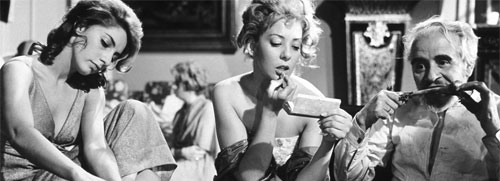
The Exterminating Angel (El ángel exterminator) :: 1962
Director: Luis Buñuel
Actors: Silvia Pinal, Jacqueline Andere and Enrique Rambal
Genres: Comedy, Drama, Fantasy, Mystery
I appreciate the movie’s subtle portrayal of the middle class. The surrealist storytelling technique used in the film invites the audience to ponder over the inexplicable events. The story revolves around a group of guests who arrive for dinner, but find themselves unable to leave. They are compelled to spend days in the host’s house and are trapped in a situation where logic does not operate. The guests are essentially stuck in their own bourgeois cul-de-sac, sleeping on furniture and the floor. Despite the audience’s attempt to find an explanation, one seems to be ever-elusive.
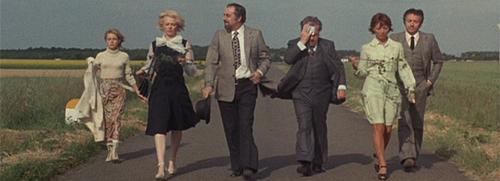
The Discreet Charm of the Bourgeoisie (Le charme discret de la bourgeoisie) :: 1972
Director: Luis Buñuel
Actors: Fernando Rey, Delphine Seyrig and Paul Frankeur
Genres: Comedy, Drama, Fantasy
When comparing “The Exterminating Angel” and “The Discreet Charm of the Bourgeoisie” side by side, the latter portrays the other side of the mirror. It revolves around a group of middle-class individuals who frequently gather for dinner, only to be repeatedly interrupted and never able to eat. The film comprises thematically linked scenes, including five gatherings of the bourgeois friends and four dreams of different characters. The line between what is a dream and what is a real scene is often blurred, creating various layers of reality and surreality that make the movie fascinating. Moreover, I admire how Buñuel portrays how people wear their social position like a costume.
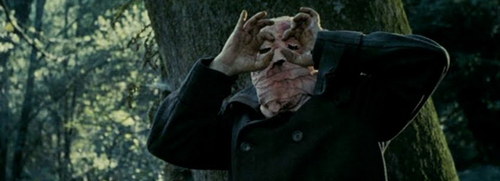
Timecrimes (Los cronocrímenes) :: 2007
Director: Nacho Vigalondo
Actors: Karra Elejalde, Candela Fernández, Bárbara Goenaga
Genres: Drama, Mystery, Sci-Fi, Thriller
This movie is an insider tip. I didn’t expect much when I pressed play, but I was pleasantly surprised by its exciting and mind-blowing storyline. Without giving too much away, I can say that it’s a science fiction thriller with a time loop paradox. It’s fascinating to see how the filmmakers created a rich and entertaining sci-fi film without relying on a big budget or special effects.
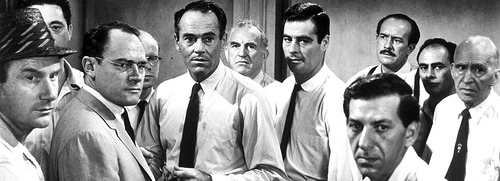
12 Angry Men :: 1957
Director: Sidney Lumet
Actors: Henry Fonda, Lee J. Cobb and Martin Balsam
Genres: Drama
I never thought a movie set in a single room could be so exciting. The film is staged, static, and dialogue-heavy, with no flashbacks, narration, or subtitles. But it’s still immensely thrilling. It follows 12 men on a jury as they deliberate the guilt or innocence of a defendant based on reasonable doubt. They’re locked in a small, stuffy room on a scorching summer day until they reach a unanimous decision. We only see the defendant briefly at the start of the film. Initially, only one juror votes “not guilty” due to his reasonable doubt. He forces the other men to re-examine the shaky case and slowly reconsider their verdict.
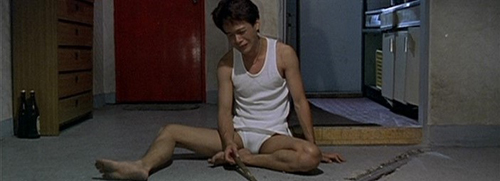
The Hole (Dong) :: 1998
Director: Ming-liang Tsai
Actors: Lin Kun-huei, Kang-sheng Lee, Hui-Chin Lin
Genres: Drama, Fantasy, Musical
If you’re looking for a unique and unconventional movie, this may be the one for you. The film is set in a rain-soaked Taipei City, which is being attacked by an enigmatic virus. The virus causes sufferers to experience fever and acute photophobia, forcing them to hide in dark and isolated places like cockroaches. As a result, certain areas of the city are quarantined, and essential services are cut off by the government. The story takes place in an apartment block located in a quarantine zone, where residents remain in defiance of quarantine regulations. To fix a leaky pipe coming from her upstairs neighbor’s apartment, a young woman sends a plumber to him. While searching for the source of the leak, the plumber creates a hole in the floor that connects their two apartments.
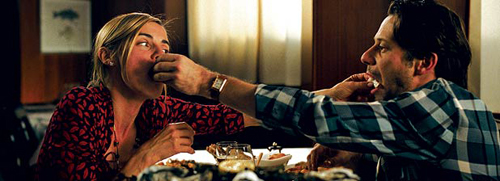
The Diving Bell and the Butterfly (Le scaphandre et le papillon) :: 2007
Director: Julian Schnabel
Actors: Mathieu Amalric, Emmanuelle Seigner and Marie-Josée Croze
Genres: Biography, Drama
The Diving Bell and the Butterfly is a biographical drama film that is based on Jean-Dominique Bauby’s memoir of the same name. The movie portrays Bauby’s life after he suffered a massive stroke at the age of 43, which left him with a condition known as locked-in syndrome. This condition is characterized by complete paralysis of nearly all voluntary muscles in the body except for the eyes, leaving patients aware and awake but unable to move or communicate verbally. Bauby was left with only his left eye, and he communicated by blinking it. The book took about 200,000 blinks to write, with an average word taking approximately two minutes.
Despite the seemingly depressing and oppressive story, the film itself is not depressing. The script is written from Bauby’s point of view, and the audience experiences the world through his eyes. The director uses colorful and dreamy images, along with an array of captivating music and sounds, to bring Bauby’s view to life. The evocative title comes from Bauby’s notion that although his body was submerged and weighted down, his imagination and memory were still free and as light as a butterfly’s wings.
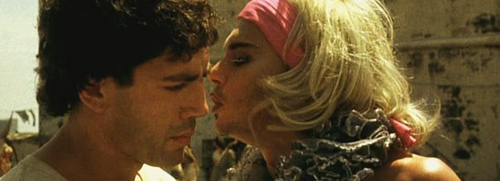
Before Night Falls :: 2000
Director: Julian Schnabel
Actors: Javier Bardem, Johnny Depp
Genres: Biography, Drama
“Before Night Falls” is based on the autobiography of the same name by Reinaldo Arenas, a Cuban poet, and novelist. While Cuba is often portrayed as a country where people are poor but happy, full of Caribbean lust for life, and always dancing, Julian Schnabel’s film paints a different picture – one that is a little less idyllic. The initially liberal face of the revolution changes with a failed attack from the USA, and from then on, an atmosphere of paranoia and repression dominates the country. Unwanted artists, homosexuals, and subversives are hunted, and police brutality and torture are commonplace. Those who can leave the country. A look at the film gives the impression that Julian Schnabel is a successful full-time painter due to the large, opulent, and extravagant pictures he creates.
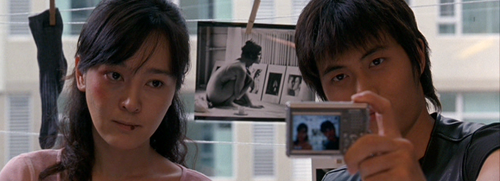
3-Iron (Bin-jip) :: 2004
Director: Ki-duk Kim
Actors: Seung-yeon Lee, Hyun-kyoon Lee
Genres: Drama, Romance
This is one of the most beautiful love stories I have ever seen. The film is like a gentle but profound hallucination, and the calming feeling you get from this movie stays with you for hours or even days. One reason for this could be the lack of dialogue between the two main characters. In fact, there are lengthy passages in which no one speaks. The two lead characters, Tae-suk (Jae Hee) and Sun-hwa (Lee Seung-yeon), are mute for most of the film. Tae-suk never talks, and Sun-hwa only has a few lines near the end. By eliminating dialogue, Kim forces his characters to interact on a non-verbal level, intensifying the manifestations of their emotions. Every nuance of body language and each facial expression gains added meaning, allowing these two characters to communicate perfectly without the need for words.
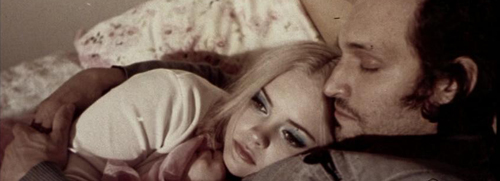
Buffalo ’66 :: 1998
Director: Vincent Gallo
Actors: Vincent Gallo, Christina Ricci
Genres: Comedy, Romance
This is such a hilarious, bizarre, and sweet love story. Vincent Gallo did most of the work – he directed, wrote, composed the music, and played the main character. The story follows a man who has just served five years in prison for a crime he didn’t commit. He had been keeping his imprisonment a secret from his parents, so he kidnaps a young tap-dancing student to pose as his wife and maintain his cover story. The rest of the story unfolds from there.
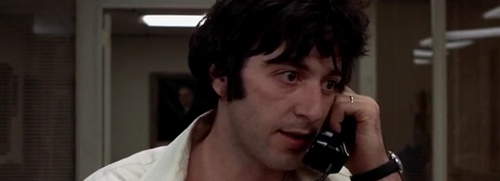
Dog Day Afternoon :: 1975
Director: Sidney Lumet
Actors: Al Pacino, John Cazale and Penelope Allen
Genres: Crime, Drama
The film was inspired by P.F. Kluge’s article “The Boys in the Bank,” which tells a similar story about the robbery of a Brooklyn bank. The robbery turns into a hostage situation, with the media fighting for the story and the crowd becoming increasingly supportive of the bank robbers. The script does an amazing job of bringing comedy to the story, without feeling out of place or forced. The humor flows naturally from the characters, and Pacino delivers a marathon of emotions, taking the audience through fear, anger, hostility, rebellion, and fine-lined good nature seamlessly. The story takes a bizarre turn when the audience learns the reason behind the robbery.
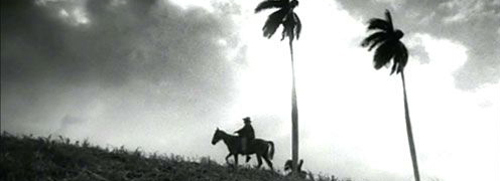
I am Cuba (Soy Cuba) :: 1964
Director: Mikhail Kalatozov
Actors: Sergio Corrieri, Salvador Wood, José Gallardo
Genres: Drama
This movie is a visual masterpiece. Each frame could easily be made into a postcard due to its stunning composition. Shot primarily in black and white, the film incorporates the use of infrared film to further heighten the contrast. Additionally, the use of an extreme wide-angle lens adds to the visually striking nature of the film. The tracking shots in particular are remarkable, with one scene following the camera as it moves along a street, enters a house, ascends to the roof, and then flies over the street without a single cut. It’s an impressive feat, especially considering the film was made in 1964.